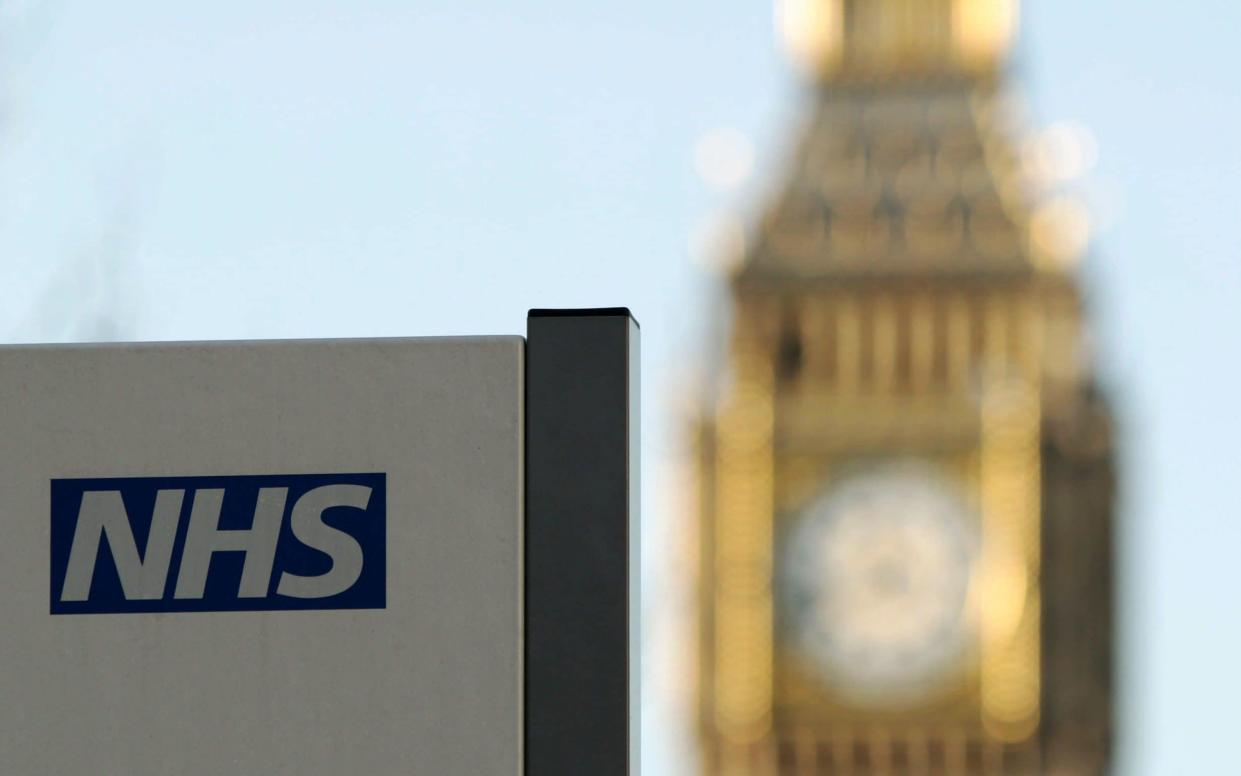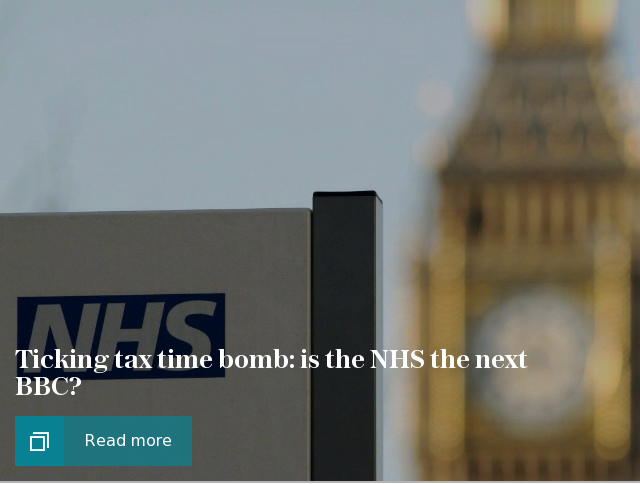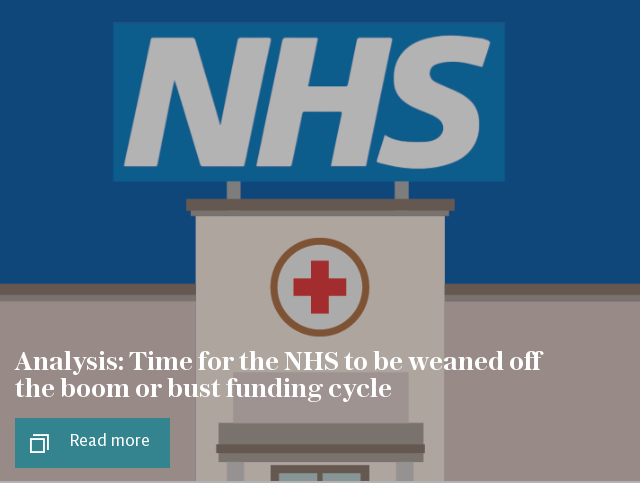Historic tax rises on middle class families needed to save the NHS, IFS says

The NHS will need an extra £2,000 a year from every household in order to function properly, experts have said.
A joint report by the Institute for Fiscal Studies (IFS) and the Health Foundation found there was “no more room” to increase health spending by taking from other Government budgets and concludes that “taxes will have to rise”.
The new analysis of what the NHS needs to cope with future demands predicts that UK spending on healthcare will have to rise by an average 3.3 per cent a year over the next 15 years just to maintain NHS provision at current levels.
But in order to get the health service back on track from currently missed targets, to modernise and meet the needs of an ageing population, funding increases of 4 per cent a year would be required over the next 15 years.
The tax rises would likely come through hiking VAT, income tax or national insurance, Paul Johnson, director of the IFS and an author of the report, said.
The middle classes are most likely to bear the brunt of the hikes, as taxing the wealthy, who are "very mobile" will not raise enough - the money would need to come from a "broad amount of people", Mr Johnson told the Today programme on Radio 4 on Thursday.
"We have to make a choice, " he said. "We could choose not to do this through taxes, and have a different sort of health service.
"But if we are going to have an NHS in 15 years, which does the things we are used to it doing, that is going to cost money.
"We cannot bumble on as we have done before."
Public satisfaction with the NHS has steadily improved over the two decades as core measures of performance such as waiting times for referrals got lower, however these positive trends are now beginning to reverse, according to the report’s authors.

"The implication is clear: in the medium term, if we want even to maintain health and social care provision at current levels, taxes will have to rise," they wrote.
The document states that relying solely on taxation to pay for a "modernised NHS" would increase the UK tax burden as a share of GDP to "historically high levels".
Funding these projected increases in health spending through the tax system would require taxes to rise by between 1.6 and 2.6 per cent of GDP - the equivalent of between £1,200 and £2,000 per household per year within 15 years.
The report found that by 2033/34, there will be 4.4 million more people in the UK aged 65 and over.

Mr Johnson added: "We are finally coming face to face with one of the biggest choices in a generation.
"If we are to have a health and social care system which meets our needs and aspirations, we will have to pay a lot more for it over the next 15 years. This time we won't be able to rely on cutting spending elsewhere.”
A Department for Health and Social Care spokesman said: "The Prime Minister and Health and Social Care Secretary have committed to a long term plan with a sustainable multi-year settlement for the NHS to help it manage growing patient demand, which will be agreed with NHS leaders, clinicians, and health experts."

 Yahoo News
Yahoo News 
